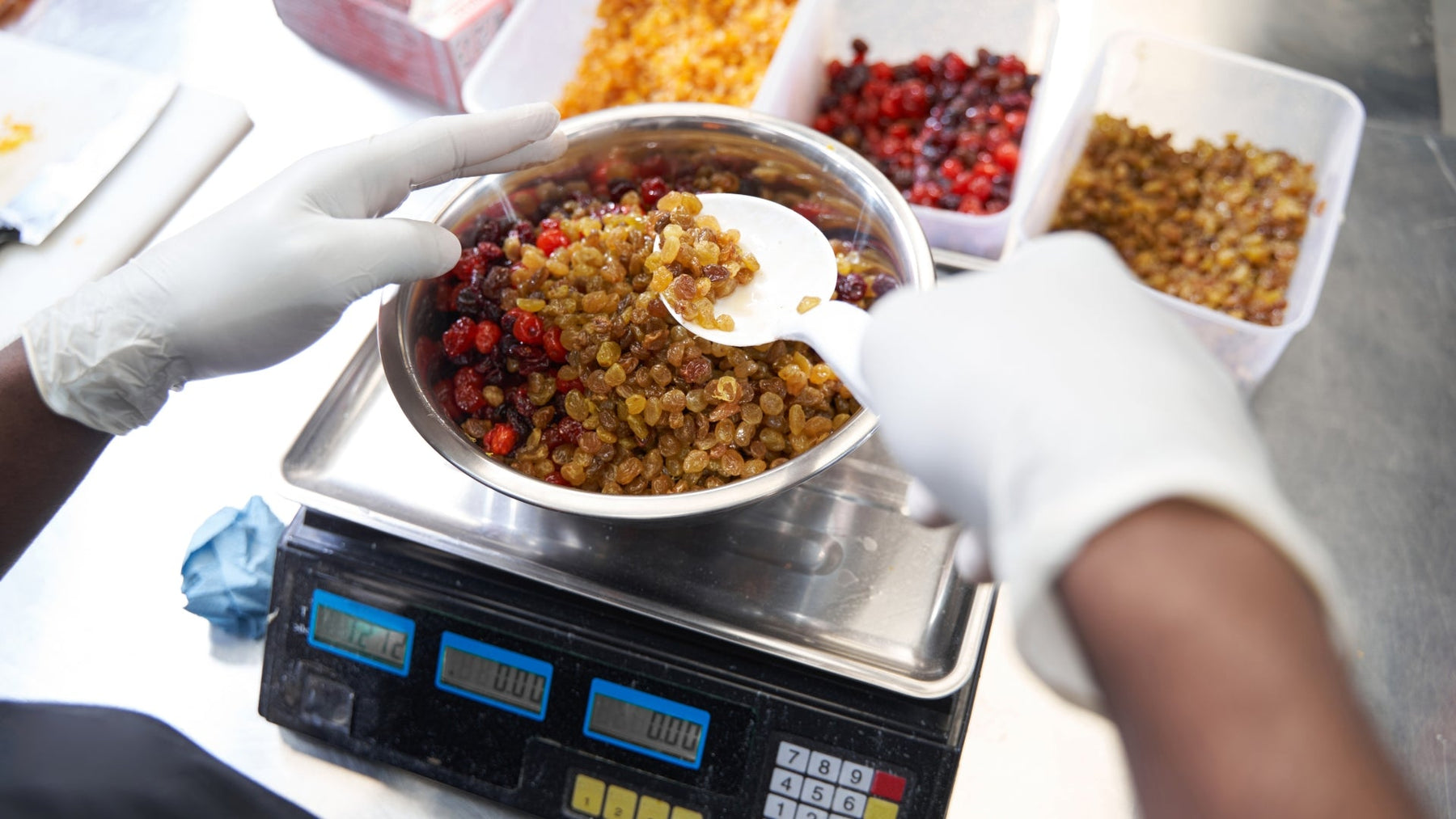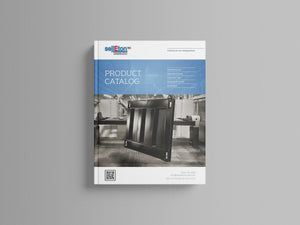
Top Food Grade Scales for Precision in Your Kitchen
Looking for the best way to achieve precision in your kitchen? Food grade scales are essential. They ensure you get accurate measurements every time, maintaining food quality and safety. This article covers why these scales are important, key features to consider, and tips on choosing the right one.
Key Takeaways
-
High-quality food grade scales are essential for maintaining precision, consistency, and compliance in commercial kitchens, directly affecting customer satisfaction and operational efficiency.
-
When selecting kitchen scales, prioritize durability, ease of cleaning, and advanced features like wireless technology for improved usability and accuracy in busy environments.
-
Regular maintenance and calibration of kitchen scales are crucial to ensure accuracy, reduce food waste, and enhance overall kitchen efficiency, highlighting the importance of investing in reliable equipment.
Importance of Food Grade Scales in Commercial Kitchens
In a bustling commercial kitchen, precision is key. High-quality scales ensure consistent food quality, leading to higher customer satisfaction and money savings. Accurate measurements are vital to work effectively, whether for portioning gourmet dishes or baking delicate pastries, to maintain the standard of the final product.
Businesses selling products by weight must choose Legal-for-Trade certified scales. These comply with regulations, ensuring transactions remain within legal parameters. Mandatory legal-for-trade calibration guarantees these scales meet necessary standards and deliver trusted precision.
Accurate measurements that comply with health standards help minimize food waste and improve operational efficiency. Consistent food portions and precise ingredient measurements reduce food waste errors, leading to better inventory management and cost savings.
Features to Look For in Commercial Kitchen Scales
Durability is crucial when selecting kitchen scales. Commercial kitchen scales must endure heavy daily use while maintaining accuracy. Moreover, ease of cleaning is vital to prevent contaminants, especially for scales used in food preparation.
In a commercial kitchen, precision is paramount. Even slight inaccuracies can impact food portioning and pricing. Hence, digital scales are preferred over analog options for their accurate readings and user-friendly displays, ensuring every gram of ingredient is accounted for, which is crucial for precise recipes.
Modern kitchen scales often include advanced features for enhanced usability. Some scales feature wireless technology, allowing the display to be positioned away from the weighing platform for better visibility and convenience. Additionally, built-in magnets on displays enable easy attachment to metal surfaces, adding convenience in busy kitchens.
Sanitary Design: Ensuring Hygiene
Maintaining hygiene in a commercial kitchen is paramount. Food grade equipment, like kitchen scales, should have easy-to-clean surfaces to prevent bacteria and contaminants. Smooth surfaces on food contact equipment minimize bacteria growth by facilitating effective cleaning.
The materials used in food grade scales should resist corrosion and degradation to maintain hygiene over time. Stainless steel is a common choice because it is durable and resistant to rust and corrosion, ensuring the scales remain sanitary even after prolonged use.
Kitchen scales must be easy to clean and resistant to contamination to maintain a hygienic kitchen environment.
Types of Food Weighing Equipment
Various types of food weighing equipment serve different purposes in a commercial kitchen. Bench scales:
-
Are typically positioned at eye level
-
Offer convenience and accuracy for weighing lighter ingredients
-
Are ideal for tasks requiring frequent and quick measurements
-
Ensure efficiency and precision
Platform scales, designed for bulk items and large containers, are perfect for measuring large quantity of ingredients, in addition to being ideal for convenient use in a bakery or large-scale food production stock place. Ship.
The HBR302 scale’s versatility makes it suitable for various kitchen weighing tasks, offering flexibility and reliability in different scenarios.
Advanced Technology in Kitchen Scales
Advanced technology in kitchen scales can significantly enhance operational efficiency. Modern food scales with connectivity features generate data that supports better decision-making in food production. This connectivity allows integration with other devices, improving tracking and management processes.
Smart kitchen scales offer wireless connectivity, enabling data sharing with other devices, which is invaluable for inventory management. Automated data recording streamlines the process of measuring and logging ingredient weights, saving time and reducing human error.
Remote monitoring capabilities in kitchen scales allow users to oversee operations from a distance, increasing convenience in busy kitchens. Additionally, advanced scales may automatically connect the display unit and weighing platform when powered on, simplifying setup and ensuring ease of use.
Choosing the Right Scale for Your Needs
Choosing the right kitchen scale ensures consistent portion sizes, helping control calorie intake and food costs in restaurants. Accurate weighing is particularly important in baking, where precision is key to achieving consistent quality and texture.
For tasks involving bulk ingredients, consider the following when choosing kitchen scales:
-
Platform scales are ideal due to their larger weighing surfaces.
-
High-end kitchen scales offer readouts in multiple measurement units, enhancing versatility for various cooking tasks.
-
Select a scale with a capacity that meets the maximum weight you will measure in your kitchen, especially when weighing ingredients.
Choose scales with the following features for busy kitchen environments:
-
Clear displays that are easy to read in varying lighting
-
A tare function to zero out container weight for accurate ingredient measurement
-
Reliability to improve inventory management by providing precise weight measurements that are close to the actual values.
Maintenance and Calibration Tips
Regular maintenance and calibration are crucial for sustaining scales’ accuracy and longevity. Calibration involves comparing the scale’s readings with a known standard and adjusting as necessary if readings fall outside specified tolerances. Frequency of calibration should be based on usage, environmental conditions, and the precision required for business operations.
Keeping a detailed calibration log and documentation is essential for traceability and verifying scale accuracy. Accredited calibration services ensure calibration is performed correctly and meets industry standards.
Start by listing some forbidden forms of the keyword “check” according to the rule 5. Check strictly adhere to cleaning protocols for food equipment, following specific steps to ensure thorough sanitation.
Benefits of Investing in High-Quality Scales
Investing in high-quality commercial scales ensures precise measurements, consistent dish quality, and cost control. High-quality scales reduce measurement inaccuracies, leading to cost savings on ingredients.
Using scales in food preparation offers several benefits:
-
Reduces ingredient waste by preventing overapplication from inaccurate measuring.
-
Durable scales minimize maintenance costs over time due to their longevity.
-
High-quality scales enhance operational efficiency in commercial kitchens by streamlining food preparation processes.
Selleton Scales: Your Partner in Precision
Selleton Scales offers high-quality food grade scales designed for precision in kitchen settings. Their commitment to delivering durable and precise products that meet the highest industry standards ensures reliability for all your weighing needs.
Customer satisfaction is a cornerstone of Selleton Scales, reflected in their service and product offerings. The company emphasizes professionalism and dedication to customers’ needs, ensuring the best possible support and products.
Summary
Investing in the right food grade scales is crucial for any commercial kitchen. From ensuring compliance with regulations to maintaining consistent food quality and reducing waste, the benefits are vast. Accurate and durable scales not only improve operational efficiency but also lead to significant cost savings over time.
Selleton Scales stands out as a reliable partner in precision, offering products that meet the highest industry standards. By choosing high-quality scales, you can elevate your culinary operations and ensure that every dish you serve is perfect.
Frequently Asked Questions
Why is it important to use Legal-for-Trade certified scales in commercial kitchens?
Using Legal-for-Trade certified scales in commercial kitchens is essential for ensuring compliance with regulations and maintaining accuracy in transactions, ultimately protecting businesses that sell products by weight. This certification helps build trust with customers and avoids potential legal issues.
What features should I look for in a commercial kitchen scale?
When choosing a commercial kitchen scale, prioritize durability, ease of cleaning, precision, digital displays, and features like wireless technology and built-in magnets for added convenience. These characteristics will enhance your kitchen's efficiency and functionality.
How often should I calibrate my kitchen scales?
You should calibrate your kitchen scales regularly, ideally before each use or at least once a week, especially if they are subject to frequent handling or vary in environmental conditions. This ensures accurate measurements for consistent results.
What are the benefits of investing in high-quality kitchen scales?
Investing in high-quality kitchen scales provides precise measurements, which reduces ingredient waste and enhances operational efficiency. This accuracy is essential for achieving consistent culinary results and managing costs effectively.
What makes Selleton Scales a reliable choice for commercial kitchen scales?
Selleton Scales is a reliable choice for commercial kitchen scales due to its commitment to high-quality, precise products that adhere to industry standards and prioritize customer satisfaction.

